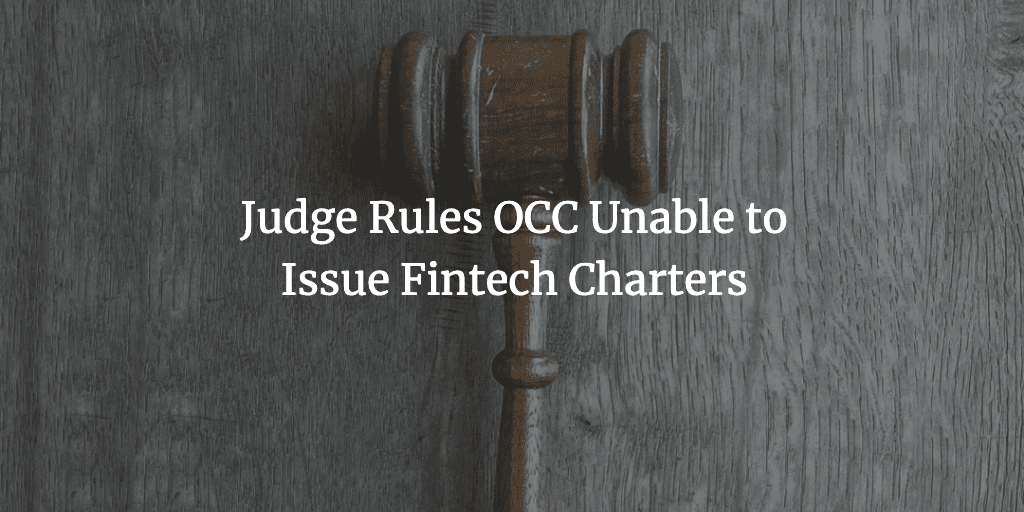
We’ve been following the OCC Fintech Charter since it was first formally proposed in December 2016. Since then it has been slow going and with no application granted. If successful the charter would have allowed a fintech to be able to operate nationally without having to go the route of state licensing.
For background, here is our previous coverage:
- New Fintech Charter Proposed by the OCC (December, 2016)
- The OCC Publishes Details on the Fintech Charter (March, 2017)
- OCC Announces Fintech Charter on the Heels of US Treasury’s Report on Fintech (July, 2018)
Since our last coverage, prospects of a OCC Fintech Charter have remained in gridlock. At the heart of the problem were lawsuits that came from states including New York. Representatives from the Conference of State Bank Supervisors and the New York Department of Financial Services who challenged the fact that the OCC had the authority to even issue a charter. Due to the uncertainty, no fintech had formally applied though many had expressed interest.
Yesterday, a federal judge ruled that the OCC does not have the legal authority to issue bank charters to non-banks. Judge Victor Marrero ruled on the fact that a clause in the National Bank Act’s business of banking requires that only firms which take deposits can receive a national bank charter.
An OCC spokesperson wrote to American Banker that the agency “disagrees with the decision and the court’s interpretation of the authority the National Bank Act grants the OCC. The agency plans to appeal the ruling to resolve this issue.”
Our Take
We’ve seen firsthand the positive impact that fintech firms are having across many areas, but they are still burdened by a complex set of legacy regulations. The state by state regulatory environment which most fintechs have to go through is an expensive proposition and it stifles innovation in our country. Those that oppose the fintech charter argue that issuing charters would create an unfair playing field but the reality is that these fintechs would still go through rigorous vetting by the OCC. Obviously this news is a huge blow to the OCC and the fintech community and we’ll continue to follow developments here as the OCC plans to appeal the judge’s decision.


